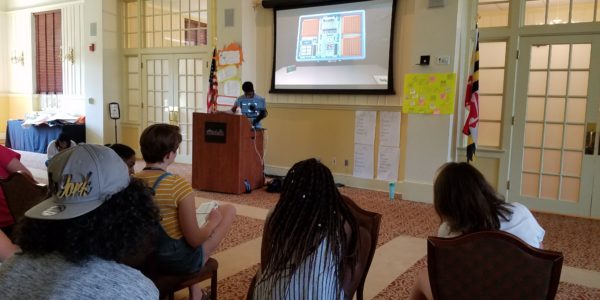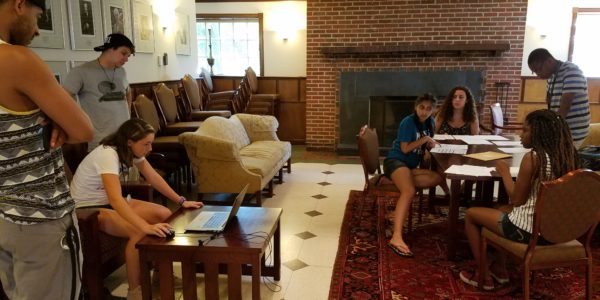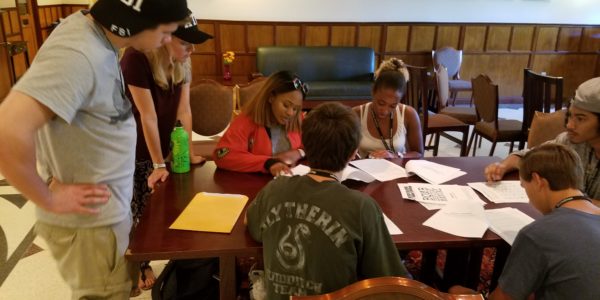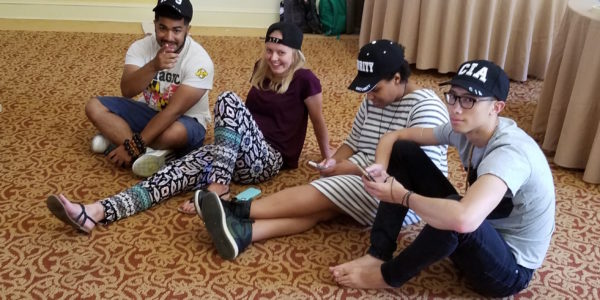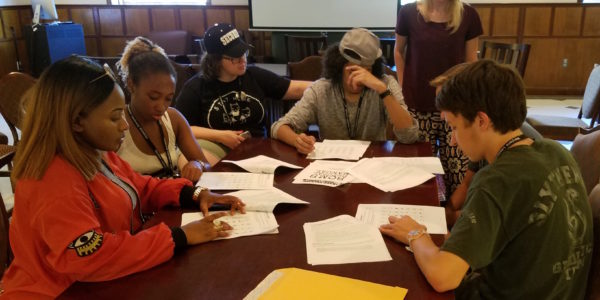Last week I had the pleasure joining Maryland Leadership Workshops alumnus Jason Israel to present a workshop at MLW’s Advanced Leadership Seminar program using the game Keep Talking and Nobody Explodes (KTANE) as a tool for stress testing teamwork.
With the help of half a dozen excellent volunteers, we ran our group of 22 participants through a crash course on leadership roles, delegation, and communication. The group split into four teams, and worked through several iterations with a focus on practicing specific leadership skills.
At the end of the day, we offered a final challenge: teams were given the opportunity to defuse a bomb in front of the other teams with an added twist: the defuser’s experts were sent to another room and could only communicate by walkie-talkie. Despite the high pressure scenario we concocted, and all the surprises up our sleeves, the teams performed admirably, and I have no doubt that given another hour of practice, they would have defeated our ultimate challenge.
Thanks to MLW for being great sports and even better hosts!
KTANE is an ideal game for a setting like this because of its low threshold, cooperative goal, and short playtime.
- The low threshold makes it easy to pick up and start playing with a minimum of instruction.
- The cooperative goal involves a team of players, and teams must work together to be successful.
- The short playtime means that teams get multiple attempts, and the opportunity to reflect, adapt, and try a new approach or different role within the single workshop.
The learning opportunities in a short workshop like this one are a great introduction to the ways that more complex esports can develop transferrable skills and present opportunities to practice leadership.
